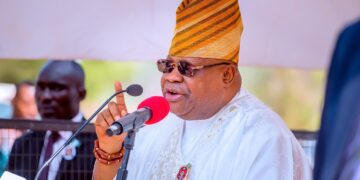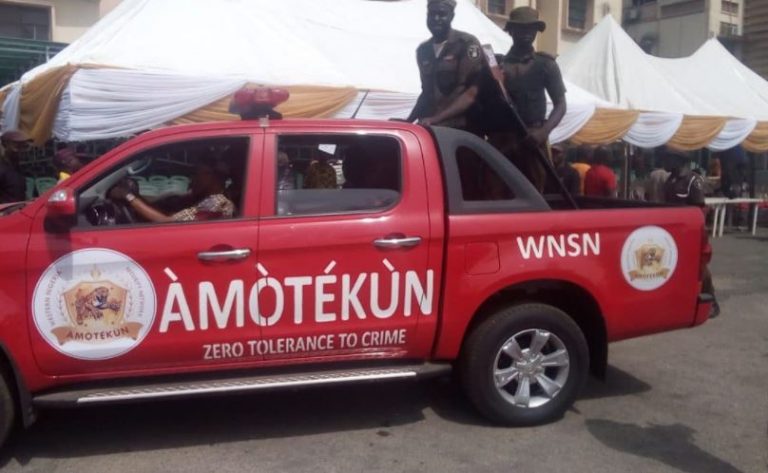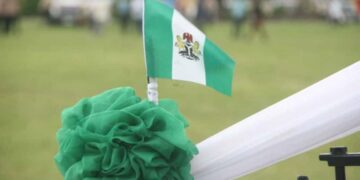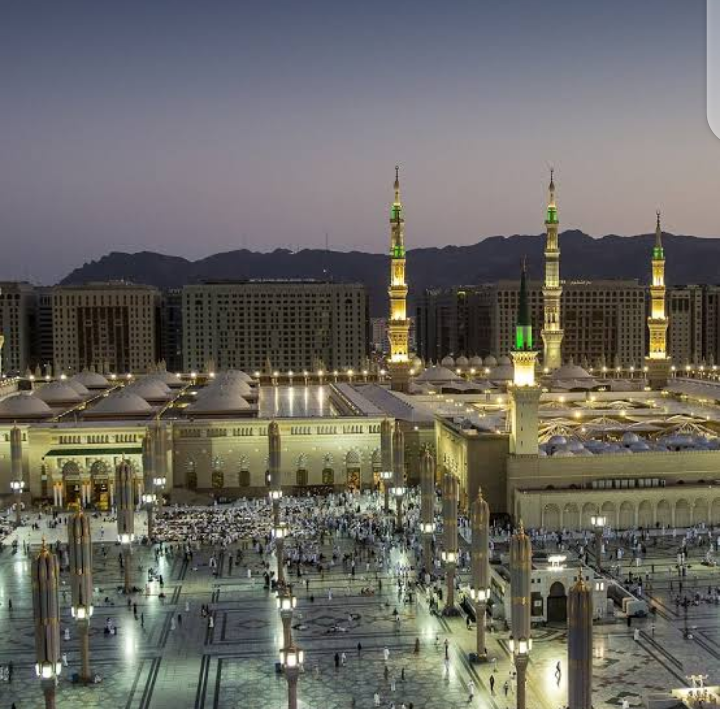I am an Oyo-Yoruba and I know that my ancestors have several pejorative terms to describe the Ijesa. Òsómàáló is one of them. Òsómàáló is a contraction of a Yoruba expression which means ‘I will stay squatting here until I am paid’. Its continued use verbalises the tension that historically defines relations between the wily Oyo-Yoruba and their trade-wise Ijesa neighbours spanning the last two centuries. The term was used to speak to Ijesas’ love for trade opportunities – and for money that was legitimately theirs from credit sales. In other words, Ijesas could sell cloths on credit “for three months,” and intrepidly demand their coins from the debtor. They have no regard for those who sell honour and safety.
Last weekend, the Osun State government announced a lockdown of four local government areas in the state. The reason was degeneration in COVID-19 cases there, as shown by science and data. All the four local governments are the core of a part of the state called Ijesaland.
I spoke with an old classmate there on Sunday. He was not surprised that coronavirus was spreading there like wildfire. We lost our values, he said. Strangers from the North and China are the new lords of farm and town there. They came to mine gold and have devastated the land and its values – and safety. He alluded to so many things and I remembered how it all started.
An oba in mid-2019 accused another of leasing out his palace to illegal miners and moving to a hotel in another town. The gathering where he said it was very unusual. The governor was the host. The oba who made that statement was the Owa Obokun of Ijesaland. He was seated right beside the governor. Lesser obas under him were there too. It was a security meeting, so the top brass of the security forces were also present. That axis where the obas came from was becoming a safety concern to everybody in South-West Nigeria. Why? Before dawn every day, hundreds of Hausa/Fulani young men file out of their village shelters, shovels in their hands, pickaxes on their shoulders, daggers hidden somewhere in their bodies. They snake into the cool thickets of farms and are not seen again until dusk. They are illegal gold miners; the same people blamed for the unending deaths and banditry in Zamfara, Sokoto and Katsina states.
The narrative was that Zamfara killings were offshoots of illegal gold mining in that corner of Nigeria. Government banned it and the miners quickly exchanged notes and glances and moved South. The place of attraction down south was Ijesaland where careless gold historically fuel mischief and feed elite taste. The influx of miners from the North spiked kidnap cases, and sparked fears of another zone of death in the South. So, the security meeting had to hold, and it started with light-hearted jokes and smiles. Then, the Owa spoke and shocked everyone that heard him. He said the problem was self-inflicted: “Our people need to be protected from criminal tendencies. It is unfortunate that some traditional rulers are the ones condoning the operations of these illegal miners. It will shock you to discover that Loja of Itagunmodi rented a good part of his palace to illegal miners because of money. He has even abandoned his palace. He now lives in a hotel in Ilesa.”
Peals of gasps from big and small men rumbled the hall. But the other oba, the Loja of Itagunmodi, did not let that accusation land before rebutting it with a back-to-the-sender: “I want the public to know that the Owa lied. I only rented my personal building to some Chinese miners who were introduced to me by the Owa himself. I am the owner of the house; I can’t rent out the palace. In fact, I have been hospitalised since I escaped from the Fulani men who kidnapped me and made away with N1.7 million in my car…”
The traditional ruler was “kidnapped and beaten” on May 30, 2018 by about 20 Fulani men. He told the meeting that his domain lost peace since strange people “from the northern part of the country, and foreigners from China and Niger Republic invaded the area in search of gold…”
When that story broke. A Tribune reporter rummaged that Ijesa forest in search of more of the truth oozing out of the mines. He came out sad and scared. The South has bitten off more than the size of its mouth. Money and its love may have done to the South what Wahabbism did to Borno and its Sambisa forest. He met young men who said they came from Zamfara, Kano and Kebbi states to mine gold and make money: “We came to work here from the North. I got to know about this place from friends and colleagues. We were doing this business together in the North before they came to this place and we later joined them. There is a lot of gold in this place and we don’t have problem with the natives…We work in groups and each group comprises four people. When invited, we usually start work after the land owners agree to pay each group the sum of N2,000 per day for food until we find the first trace of gold. This amounts to N500 per person. We would open fresh negotiation after picking up the first gold at the site. The standard charge is N10,000 per gram of gold…We end up making about N1.5 million where we find gold on rebate of N10,000 per gram while the land owners sell for about N50,000 per gram to the merchants.”
I cannot remember what the security meeting agreed on or the effects of the resolutions. I also do not know how much of history guided that deliberation. If the ancestors of the attendees were to walk that land again, they would feel a sense of deja vu; they would weep at history being repeated in a more brutal manner. There was a gold rush in that area in the 1940s which attracted what the colonial government described as “footpads, rogues, and an assortment of vagabonds” … “crowds of Hausa labourers” whose illegal mining activities did extensive damage “both to subsistence and cash crops…” (See ‘An Ounce is Enough’ by Toyin Falola, 1992, at page 42). Today, it is no longer about the destruction of “clusters of pleasant rural villages” in Ilesa by over “a thousand Hausa illegal miners” as recorded by history in 1944. What riles this moment are fresh concerns, not about the old blight of destructions nor the recent killings and kidnapping and rape by clusters of northern boys in the South. The current fear is the spread of COVID-19 and death by persons from the North.
Every night, the Nigeria Centre for Disease Control (NCDC) releases our coronavirus report card. I sent the results to a very senior journalist in Lagos midnight on Friday. He looked at it and told me that “when the pandemic is subdued in the South – South-West in particular – our problems will be the North where the protocols are observed in the breach.” I agreed as I checked the results again. The results showed that Kano said it had five (5) cases, Bauchi four (4), Gombe two (2) and Katsina one (1). There was no Zamfara and no Sokoto and no Kebbi States on that list. Are people being tested diligently for coronavirus in the North? My senior said the North was obeying President Donald Trump’s protocol. At a recent campaign rally in Tulsa, Oklahoma, Trump said he had told his people to “slow the testing down…” because increased testing meant more positive cases, a result that was making the country look bad.
But as the North trims down its COVID-19 numbers by cutting corners, it is directly accelerating exportation of sickness down south. It daily dumps its ‘babu corona’ boys and girls on the South in the middle of a pandemic. And the result is that the South is mourning and sweating, counting cases and bodies. A former governor died, a senator died, a commissioner died, two governors are in isolation. The figures of the sick and dying keep rising. That was why the Osun State government announced a lockdown of a part of that state called Ijesaland. Results showed that the place has become a COVID-19 mess. How? Untested, untreated almajirai from the North and their seniors from China stream there daily to pillage the gold fields. And as they mine the fields, the sore of COVID there festers.
Ijesas of old never respected rent collectors; they proudly answered Òsómàáló . It meant to them honourable riches. Even their enemies believed so. But ‘money for hand, back for ground’ has locked down the present. This narrative goes beyond the Ijesa. Its flood carries all of us along with it. When the North-West accommodated strange Fulani from outside Nigeria, it lost its peace. Our homes down south are this moment occupied by strange peoples with strange imports. Terror guests who threaten their hosts and everyone around them roam about ‘promiscuously.’ Re-infecting our decontaminated hearth are elements who sing their mallams’ verdict that coronavirus does not exist. In the bedroom are the Chinese who buy honour and pride with rust gold coins. The fact of China being the vector of both disease and debt and the champion of the current epidemic from Wuhan is of no concern to us. The Chinese are the merchants the northern miners service in gold trenches. The killer virus travelled here and everywhere from China; northern Nigeria boldly spreads it. These facts are never enough for my part of Nigeria to gate off all undesirable guests. Money is the sole factor here – and now. It is the reason all doors – and legs- are open. It is a shame. Like someone said in the palace of the Owa in 1910 when the celebrated warlord, Ogedengbe, died: “ayé ti bàjé” (the world has gone bad). It is spoilt, finished. The loss of value – and valour – can be the only reason for the opening of doors to death and disease and rape by a people who produced the first of everything noble in Nigeria.
(Published in the Nigerian Tribune on Monday 6 July, 2020).








